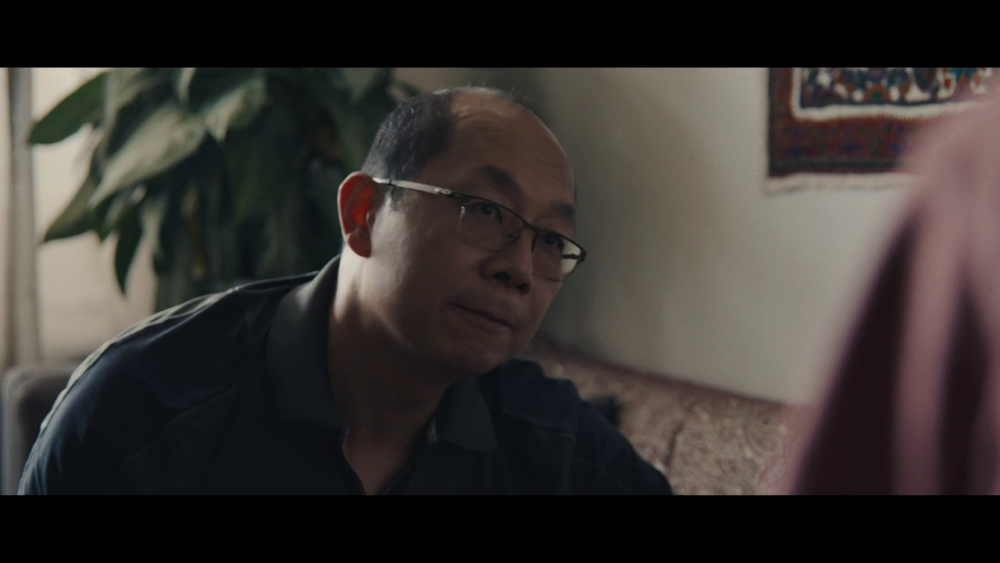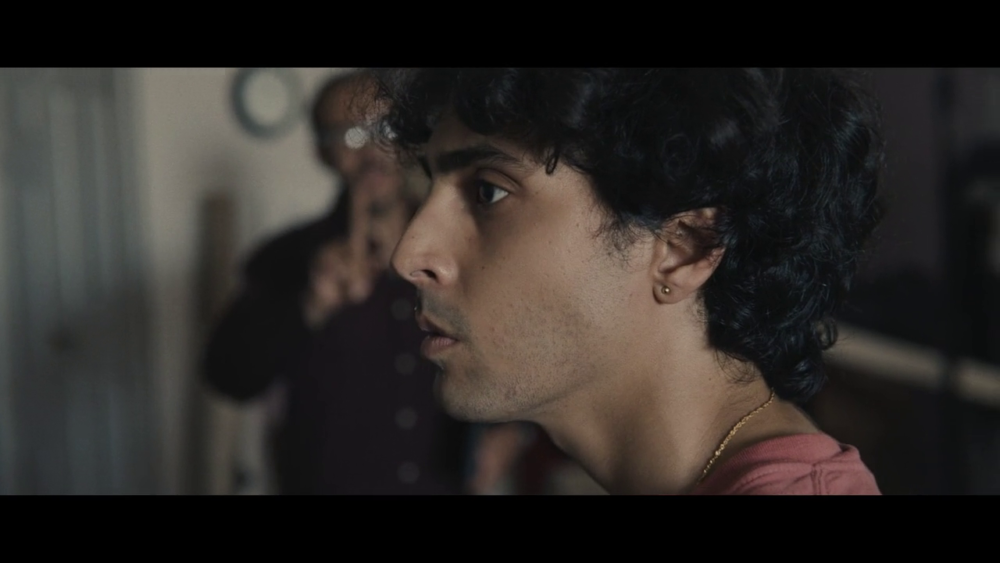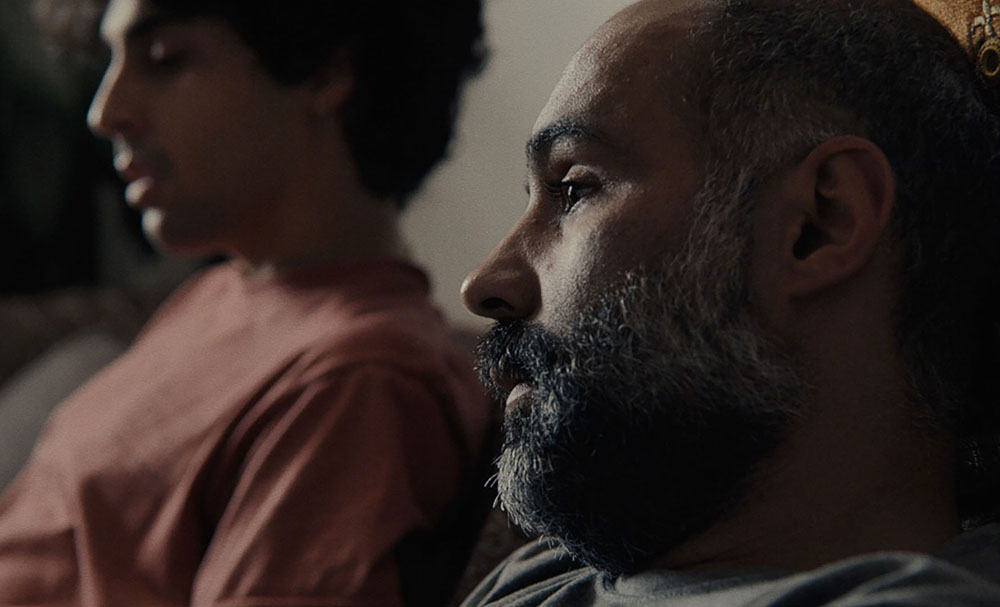Maziyar Khatam’s short film “Baba,” co-directed by Anya Chirkova and Meran Ismailsoy, begins with a tense situation: Two men who don’t speak each other’s language try to get their point across. The first man, speaking in English, demands that the other man pay him his rent for the apartment. The Farsi-speaking man, on the other hand, tells him to shut up while he’s talking to another person on the phone.
All these happen as the latter momentarily leaves his stove which triggers the smoke alarm—while someone knocks at the door. That someone turns out to be the old man’s son (Khatam) who, upon diffusing the situation, exclaims in exasperation.
“So I left my class to be your translator? You said this was an emergency!”
Within the first minute, Khatam and the filmmakers lay down the film’s premise: A middle-aged Iranian man makes a desperate bid to keep his apartment as his relationship with his son unravels. With its offbeat execution, however, ‘Baba’ manages to be engaging, frustrating, and really affective.

A Problematic Parent Becomes the Son’s Bane
Now serving as the translator to placate both men, the son learns from the landlord about the problem at hand. Turns out, his ‘baba’ (father) hasn’t paid the rent for quite some time. Add to it the neighbors’ complaints about the loud music and parties that last until the wee hours of the morning. When confronted, Baba simply reasons that he’s free to do whatever he wants, and that the landlord would have to wait if he wants to collect the rent.
The film then shows Baba’s last-ditch efforts to pay the rent, and it is for this plan that the son finally loses it. For the son, however, it’s not about the inability to pay the rent. Never mind inquiring about where Baba’s money allocated for the rent went—the question instead is, Why doesn’t he wise up and act his age?
Those tangled feelings one has for their parents who regress as they grow older might involve love. But they also include frustration, disappointment, and even anger. “Baba” explores these emotions, with the filmmakers using Khatam’s expressive eyes to portray a son finally realizing how his father might have arrived at the point in his life where he’s stopped giving a damn.
For the young man, however, it’s now his turn to decide whether he should, too.

‘Baba’: Of Prevailing Parental Issues (And Why the Film is Difficult to Love)
For those of us who know of parents this immature, this problematic behavior just hits close to home. Khatam (who wrote the short), for his part, does not hold punches here. Baba is arguably irredeemable, with a level of irresponsibility that audiences can only imagine being among the many reasons that theirs is a broken family.
In an interview some time ago, Khatam spoke about his motivation behind making “Baba.” He said that he was inspired by his own relationship with his father. As they were beginning to drift apart, the disconnect became more and more pronounced. Worse, the main component which could have helped bridge the gap became a hurdle instead: While his father’s English was almost nonexistent, Khatam’s Farsi was getting worse. One can only imagine the screaming matches happening in real life, juxtaposed with the tension in the film. If anything, it’s safe to say that the audiences can have an idea how it played out between Khatam and his father.
‘Baba’ is that kind of a short film that resonates with a lot of people so hard that it becomes very challenging to love. Nonetheless, I’m saying that in a positive way. Think of the film as the polar opposite of Richard Williams; and even then, this film’s ‘baba’ would defend his stance by claiming he only did things his way out of love for his son. This is a story of irresponsible parenting that audiences can relate to.
Sometimes, though, maybe a little too well.
 Winner of the Best Canadian Short Film at the 2022 Vancouver International Film Festival, “Baba” currently screens at this year’s Sundance Film Festival as part of ‘Short Film Program 2.’
Winner of the Best Canadian Short Film at the 2022 Vancouver International Film Festival, “Baba” currently screens at this year’s Sundance Film Festival as part of ‘Short Film Program 2.’


